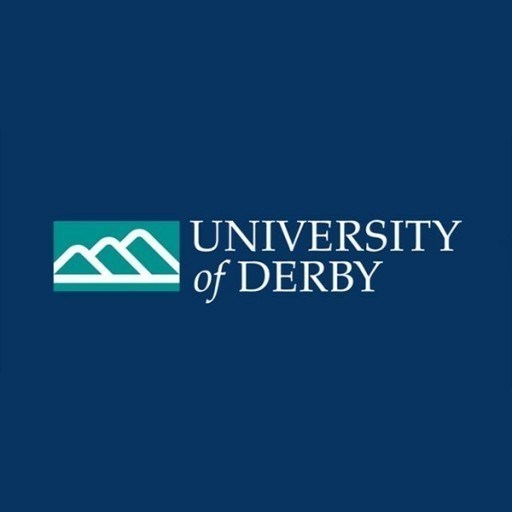Photos of university / #bruneluni
Advertisement
The MSc Occupational Therapy (Pre-Registration) aims to provide a Master's level route for graduates to become competent occupational therapists eligible to apply for registration with the Health Professions Council, for membership of the British Association of Occupational Therapists/College of Occupational Therapists and be equipped for lifelong, safe and effective practice within the global marketplace.
Aims
It differs from other Masters programmes in that it is a professional programme at postgraduate level and is full-time. It is not for those who are already qualified occupational therapists.
Careers
Occupational Therapy as a career offers many opportunities to work in the health service, social services, education or the private and voluntary sector.
Special Features
Research within the College includes:
* Professional Practice (eg user involvement, occupational science, health promotion, falls prevention, discharge planning, acute care, cultural awareness)
* Research in Rehabilitation
* Ageing Studies.
PROGRAMME STRUCTURE New Course 2014-15
The MSc (pre-registration) Occupational Therapy programme benefits from integrated education with other programmes within the School of Health Sciences and Social Care. In their first year of study, the MSc (pre-registration) Occupational Therapy students undertake components from a number of the current BSc modules/study blocks, as well as shared teaching with post-graduate students from the Divisions of Occupational Therapy, Physiotherapy, Social Work and Community Health and Nursing Studies. In their second year of study, students share modules with other post-graduate students within the Division of Occupational Therapy. Where learning is shared with the undergraduates, the content has been integrated into M level modules and is assessed at M level.
The mode of study comprises two years full time. The programmes taught modules occur within Brunel Universitys three-term structure. To provide a balance between academic and practice placements and still meet the minimum of 1,000 hours of practice placements required by the World Federation of Occupational Therapists and the College of Occupational Therapists, three of the practice placement modules extend beyond the term boundaries over the summer.
Academic modules are based at Brunel University and practice placement modules are provided in a range of health and social care setting and increasingly in voluntary and private organisations including non traditional settings.
STUDY AND MODULE BLOCK INFORMATION:
Year One: The Skilled Practitioner the How, What and Why of Occupational Therapy
Year 1 of the programme introduces students to the how, what and why of occupational therapy and aims to give them the opportunity to develop, explore and critique the core occupational concepts and skills of the profession in depth. The arrangement of study blocks and the 3 practice placement modules (that occur prior to the commencement of academic study in year 2), allow for a reciprocal exchange of academic knowledge and professional skills that develop the students understanding and knowledge of the profession further. Applying and evaluating research in practice is essential for occupational therapists, who are required to adopt evidence-based practice. Therefore the students are made aware from the onset of the programme of how research impacts on practice through clinical reasoning and decision making skills gained in study blocks and also an inter-professional module HH5609: Approaches to Research.
Year 2: Mastery of Occupational Therapy Advancing Practice
Year 2 of the programme aims to provide students with a more advanced exploration of the occupational therapy profession. Students acquire mastery in critical knowledge and evaluation of key issues on professional practice as well as critical analysis, synthesis and evaluation of theoretical concepts central to occupational therapy. In addition, students study one optional module that enables an in depth consideration of a specialist area of current practice. The students research skills are further enhanced in the second year and culminate in the students producing a research thesis, in the form of a detailed research dissertation.
ElectiveOccupational Therapy for Children, Young People and their Families
Main topics include: analysis of aspects in child development and study of common problems and disorders in childhood; review of the research based current evidence on occupational therapy theory and practice for children and adolescents; review the clinical reasoning process in paediatric occupational therapy practice; examine a selection of experimental methods appropriate for assessing and evaluating clinical practice or service delivery in childrens health; exploration of effective ways of incorporating the family into their childs assessment and treatment; exploration of relevant current childrens health policy and legislation.
Occupational Therapy in Mental Health
Main topics include: overview of occupational therapy in mental health; review of the research based literature on occupational therapy theory and practice in mental health; detailed exploration of current mental health policy and legislation in relation to occupational therapy practice; exploring contemporary issues; examining current evidence and research related to the contemporary mental health issues; exploring a detailed selection of quantitative and qualitative measures appropriate for assessing and evaluating clinical practice or service delivery in mental health.
Note: This course may involve regular access to children and/or vulnerable adults. Where this is the case, students will be required to complete a Disclosure and Barring Service (DBS) check, previously known as a Criminal Records Bureau (CRB) check. The application will cost £51.86 (this amount is subject to change) and the University will send further instructions as part of the admissions process. For further guidance please email admissions@brunel.ac.uk







